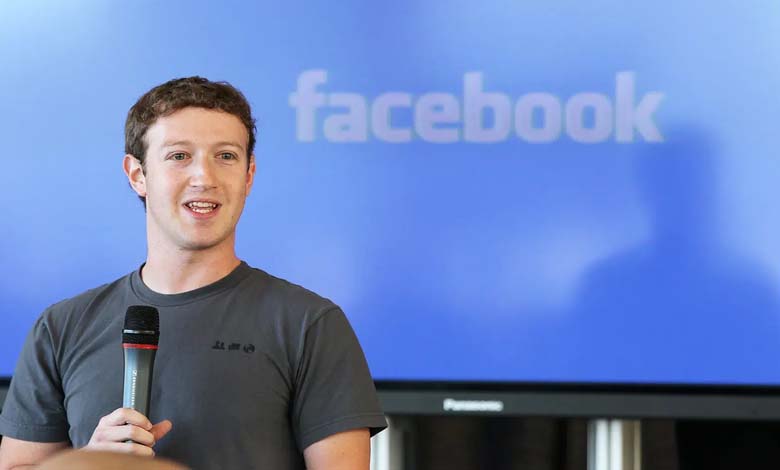Mark Zuckerberg’s Strategy to Increase Facebook’s User Base

Since its creation in 2004, Facebook, the social media platform founded by Mark Zuckerberg, has experienced spectacular growth. However, as the social media market became more saturated and platforms like Instagram, TikTok, and Twitter gained prominence, Zuckerberg had to rethink his strategy to keep Facebook relevant in the ever-evolving digital landscape. The key question now is: How does Mark Zuckerberg plan to further increase the number of active Facebook users?
-
Due to the Anticipated Showdown, Mark Zuckerberg Attacks Elon Musk
-
Zuckerberg considers separating Instagram from Meta
This article explores the recent initiatives Zuckerberg has put in place to attract new users while retaining existing ones in an increasingly competitive market.
One of Zuckerberg’s main priorities is to reinvent the user experience to make Facebook more appealing and relevant, especially for younger generations who prefer platforms like TikTok. Meta has started investing heavily in innovative features, such as the integration of Reels (mainly inspired by those from TikTok), in order to capture users’ attention and encourage them to spend more time on the platform.
-
After the announcement of the end of smartphones… Zuckerberg reveals the alternatives
-
Alternative to “X”: One Million Users Join “Bluesky” in 24 Hours
Another aspect of this strategy is improving monetization tools for content creators. Indeed, creators, who play a crucial role in user engagement, now have the opportunity to earn money through Facebook Stars, ads integrated into their videos, as well as the integration of Facebook Shops, where they can sell their products directly on the platform. This helps Facebook retain content creators and, in turn, attract more users, particularly those interested in specific products or services.
Meta is also working to improve the Facebook algorithm so that content is more targeted, relevant, and engaging for users, based on artificial intelligence and machine learning. This makes the platform more personalized and attractive.
-
Musk’s Latest: Advanced Technology Restores Sight for the Blind
-
Meta reveals a new surprise to boost its artificial intelligence
Zuckerberg’s long-term vision revolves around the metaverse. Although this may seem like a futuristic project, Facebook is laying strong foundations to create an immersive, parallel universe. Meta acquired Oculus (virtual reality headsets) and developed several augmented and virtual reality products to create an immersive environment for users.
In the future, Facebook users could interact in virtual spaces in real-time, assisted by avatars and digital objects, making the platform’s experience much more interactive and fun. In this context, Facebook would no longer be just a social network but a true gateway to a digital immersive world, which could attract many users seeking new ways to connect socially.
-
Meta Introduces Features to Attract TikTok Users to Facebook and Instagram
-
“Meta” Announces a New Artificial Intelligence Model
This expansion into the metaverse could also offer additional monetization opportunities, such as allowing users to purchase virtual items or participate in paid virtual events.
Another area Zuckerberg is focusing on to increase Facebook’s user base is security and data privacy. Due to several scandals regarding the use of user data (such as the Cambridge Analytica case), Facebook lost the trust of many users. In response, Meta has taken several measures to improve personal data management and increase transparency about how information is collected and used.
-
Amazon and Meta: AI Concerns Are Overblown
-
Human Rights: Meta’s policies silenced voices supporting palestinian rights
Additionally, combating misinformation has become a priority for Facebook. By improving moderation tools and collaborating with external organizations for fact-checking, Zuckerberg is working to restore Facebook’s image and attract users who are concerned with the accuracy of the information they consume.
Another approach Zuckerberg is taking to expand Facebook’s user base is through interconnection between the various platforms owned by Meta. Facebook, Instagram, WhatsApp, and Messenger are now part of a unified ecosystem, allowing users to seamlessly switch between platforms while maintaining smooth interactions. For example, a user can use Facebook to view content, then send a private message on Messenger or share a photo via Instagram.
-
Meta responds to ‘suppression of Palestinian posts’ on Facebook and Instagram
-
“Meta” comments on the blocking of pro-Gaza posts… What did they say?
By further integrating these platforms, Meta seeks to increase user engagement and retain users by encouraging them to spend more time on these different applications, while offering them experiences tailored to their needs.
Meta’s Short-Term and Long-Term Goals
Mark Zuckerberg is well aware that growing the active user base on Facebook is now a major challenge. However, by steering the platform toward the metaverse, improving the user experience, and optimizing creator monetization, he hopes to not only maintain but also grow the user base in the coming years.












